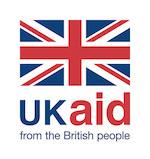This blog post is the final of a five-part blog series unpacking the findings from our latest report, ‘The digital lives of refugees: How displaced populations use mobile phones and what gets in the way.’
The Ugandan Government’s decision last month to ease access to mobile-enabled services for refugees proved to be a watershed moment. Specifically, the Uganda Communications Commission (UCC) issued a directive to mobile network operators (MNOs) to recognize the OPM Refugee Family Attestation as a valid form of ID for refugees to obtain SIM cards. Prior to this directive, refugees could only obtain SIM cards with a Ugandan government issued refugee ID card, which typically takes months to obtain, due to the backlog because of the massive influx of refugees in the country. Refugees would thus find workarounds to obtain SIMs, such as registering multiple SIM cards with a single person or registering with a Ugandan national. To circumvent this scenario, MNOs would periodically have SIM deactivation campaigns.
Two weeks before the directive was issued, the GSMA and UNHCR jointly hosted the UCC, MNOs, the Office of the Prime Minister, and humanitarian organisations in Kampala and Yumbe (Bidi Bidi Settlement) to discuss how mobile technology can be leveraged to effectively assist refugees. GSMA presented its research, Digital Lives of Refugees, focusing on Bidi Bid Settlement (Uganda) which found:
- Over two thirds of refugees are active mobile phone users; however, one-third of refugees with a SIM reported that it was not registered in their own name;
- Almost half of refugees in Bidi Bidi are mobile money users (44 per cent) and P2P and airtime are the most common uses cases;
Engaging discussion taking place in #bidi #bidi settlement today between @GSMAm4d #m4h, @UNHCRInnovation, MNOs, humanitarians and refugee leaders on importance of ID to access mobile services and building meaningful mobile phone use cases for refugees. #digital lives #refugees https://t.co/0hIQs3lohh
— Maha Khan (@digitallymaha) July 25, 2019
While mobile connectivity can improve refugees’ access to financial services, energy sources, and identity services, providers need to be cognizant not to reinforce existing inequalities. For instance, women are 47 per cent less likely to own a mobile phone in Bidi Bidi compared to men. We discussed these findings along with the implications at the events in Kampala and Yumbe, and below are some key takeaways:
1. “You cannot develop services for someone you have never interacted with.”
MTN, one of the leading mobile money providers in Uganda, noted that it is essential to understand customers’ pain points before building a product for them. Often, product developers find themselves designing products in the boardroom without deeply understanding the needs and preferences of their target market.
2. Strategic partnerships between humanitarian organisations and MNOs are key to effectively serving refugee populations.
These partnerships must go beyond contractual relationships in order to leverage each partner’s core expertise. Humanitarian organisations are well versed in operating in protracted crises, and understand refugees’ needs and challenges they face; while MNOs are experts in mass-market sales and distribution campaigns and have the technical knowledge to develop mobile-enabled solutions. Therefore, building sustainable and meaningful use cases for refugees can be an achievable goal if coordination, collaboration, and joint effort is prioritised.
3. Good products combined with literacy training can lead to upskilling, but traditional literacy programmes are not very effective. There must be a balance of ‘tech and touch.’
In order to see behaviour change, according to the Five Principles for Building Women’s Capacity for Digital Financial Services, meaningful use cases (i.e. products) must be coupled with literacy programmes that are delivered in an engaging format along a user journey’s key touchpoints, such as at account opening, engagement with community leaders, etc. Innovative technology like chatbots have found to increase customer engagement with low-levels of financial literacy, and thoughtful, well timed human interaction with customers has been found to be very effective.
4. Refugee youth population are influential change-makers in the digital space, but also the most vulnerable.
Youth make up 21 per cent of the refugee population in Uganda, but there is little data on their mobile phone usage, ownership and needs. Yet, there is an understanding that access to digital content and technology may expose them to more risk. The humanitarian community must conduct research (with appropriate safeguarding measures) that builds an evidence base on their needs, disparities that may exist, and the benefits and risks of leveraging mobile technology.
5. Leverage existing Government programmes and efforts.
The Government of Uganda has one of the most enabling and progressive regulatory environments for refugees. It is critical that the humanitarian and private sectors understand the initiatives that Governments are taking place in order to avoid duplication and ensure complementarity.



